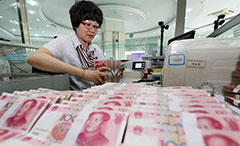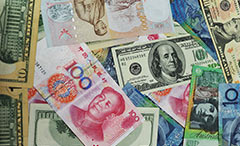Regulators highlight financial stability
2017-07-15
China Daily
China’s top policymakers will gather this weekend at the Central Financial Work Conference in Beijing to discuss and formulate policies for the country’s financial sector. The meeting, which is held once in five years, will set the tone for the country’s financial policies and reform in coming years with a focus on strengthening coordination among various regulators and preventing systemic financial risks. This curtain raiser presents insights and views of regulators from the banking, securities and insurance sectors.
Insurers urged to take precautions against risks
Chen Wenhui, vice-chairman of the China Insurance Regulatory Commission, said China’s insurance industry is facing a number of risks, including liquidity pressure and reputation management. He urged insurers to take precautions against such risks.
“Most traditional large and medium-sized insurance companies keep risks under control, while for some radical firms, hidden risks loom large as they experienced surprisingly fast business expansion in recent years,” Chen told Xinhua in an exclusive interview.
“The asset size of China’s insurance industry exceeds 16 trillion yuan ($2.4 trillion). However, the industry’s liquidity risk is mainly caused by a few companies,” Chen said, suggesting that those companies should slim down by chopping off non-core businesses to ease liquidity pressure in the short term.
The CIRC has made targeted risk warning, supervision and disposition plans for the industry, according to Chen.
The insurance regulator will continue to guide insurers to focus on core businesses. Insurance funds will be guided to serve national strategies and infrastructure, Chen said.
The regulator will also strengthen the sector’s role in supporting the real economy, Chen added.
Risks in China’s banking sector controllable
The deputy head of China’s banking regulator said risks in the sector are generally controllable despite lingering uncertainties. Wang Zhaoxing, vice-chairman of the China Banking Regulatory Commission, said the commission has made headway in the prevention and control of risk.
“More energy has been channeled into dissolving non-performing loans ... and violations in financial markets have been contained, with competition more rational and business operation more normal,” Wang said, adding that illegal fund raising cases have dropped substantially.
Bad loans have remained at a low level in China. The NPL ratio of Chinese banks stood at 1.86 percent by the end of May, with stable liquidity and abundant capital and provision.
“Banks’ profitability and risk resistance are good compared with global peers, and the international influence is also on the rise,” Wang said.
Wang’s remarks came amid the country’s ongoing campaign to rein in financial risks and deleverage as a firm economy provides more leeway to such measures, which partly aim to cushion the impact of US rate hikes.
Banks and other financial institutions have been subject to stricter supervision, and action has been taken against irregularities, such as shadow banking.
Wang noted that the situation remains grim and told the commission that “not a single risk will be neglected and not a single hazard will be let go.”
He warned of more defaults from debt-ridden companies, increasing cross-market and cross-industry financial activities, and sharper fluctuations.
CSRC pledges stronger market supervision
China will strengthen oversight on the securities market to keep it fair, open and impartial, Jiang Yang, vice-chairman of the China Securities Regulatory Commission, said in response to questions about priorities in the next phase of the CSRC’s work.
“The regulator will continue to crack down on violations of securities laws and regulations, including insider trading and market manipulation,” Jiang said.
So far this year, the CSRC has imposed administrative penalties on 113 cases and slapped total fines of 6.4 billion yuan, which is 1.5 times last year’s total.
Meanwhile, the CSRC has prohibited 30 people from entering the market, almost equivalent to the total number in 2016, Jiang said.
China will advance reforms to make the capital market better serve the real economy. And the capital market will open wider to foreign investors in a steady way and domestic brokerages will expand business overseas, Jiang said.


